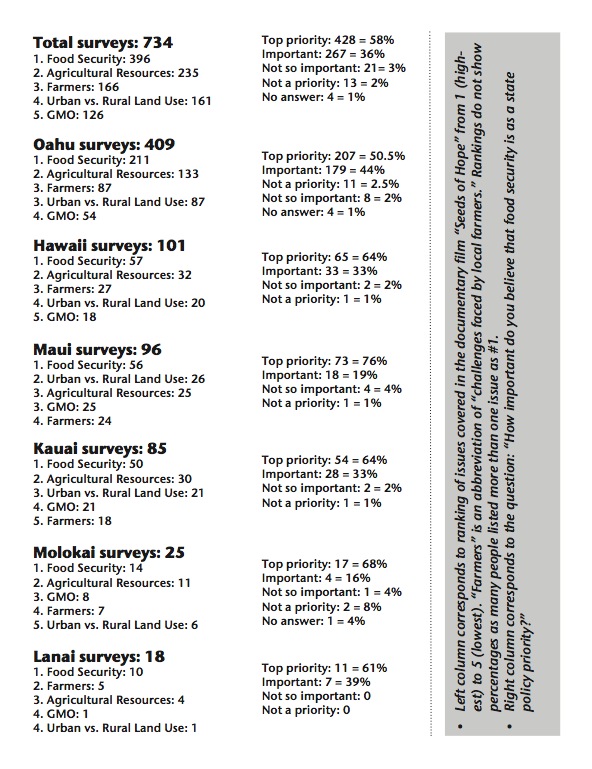Richard Ha writes:
Take a look at this survey of “Hawai‘i’s Food and Ag Challenges Ranked in Order of Importance.”


Between October 2012 and December 2013, while the Hawai‘i Rural Development Council screened the film “Seeds of Hope – Na Kupu Mana‘olana” around our state, it asked viewers to fill out this survey about the issues discussed in the movie.
Survey takers ranked “Food Security” as our number one food and agriculture challenge (note that “GMO Agriculture” came in as lowest priority of the five issues discussed).
Statewide, 94 percent of survey takers thought Food Security should be either “top priority” or “important” as a state policy issue, and on the Big Island, 97 percent of people thought so.
This is what I have been saying, over and over. Food security is a critical issue out here, in the middle of the ocean, where we import most of our food. We need to have important and rational discussions, now, about how we will ensure we are food secure as conditions continue to get more challenging.
It’s a real disconnect to realize that 97 percent of people on the Big Island consider food security “important” or even “top priority,” and then to think about recent community support of the Hawai‘i County Council’s banning GMO/biotech solutions on the Big Island.
All I can come up with is that there are a lot of people who don’t see the whole big picture and who don’t see that there are unintended consequences:
- Because only Big Island farmers are banned from using biotech solutions to agricultural problems, their competition (farmers on other islands and the mainland) will end up having lower costs and more successful crops
- This will undeniably lead to a decline in agriculture on the Big Island
- This will undeniably lead to less food security
We need to take a hard look at what we are doing now so that we head down the right path. The decisions we make now will affect not only us, but also our grandchildren and their grandchildren. Let’s make sure they are able to thrive and live a good, affordable, food-secure life here on the Big Island when it’s their turn.


